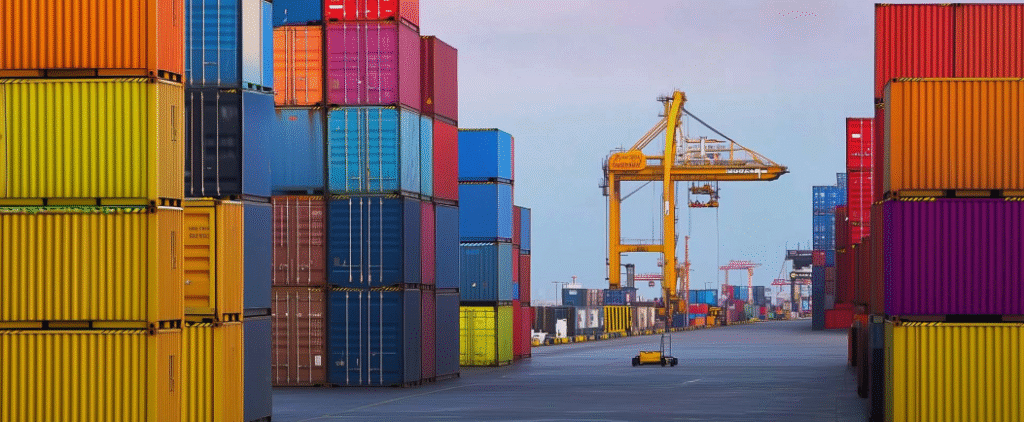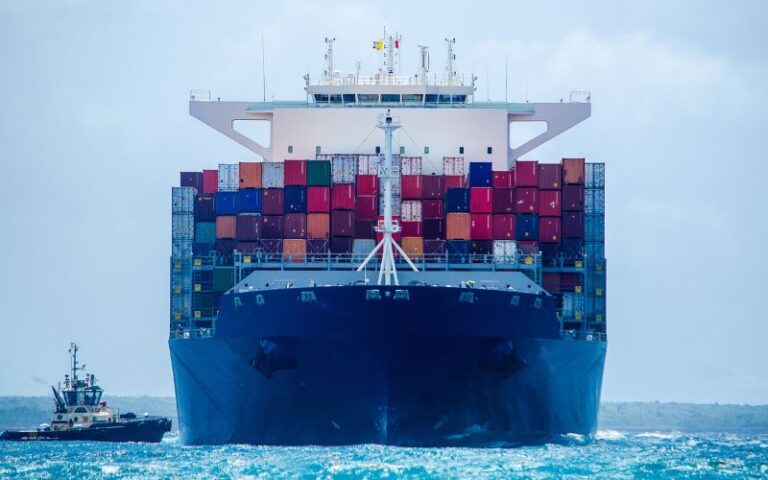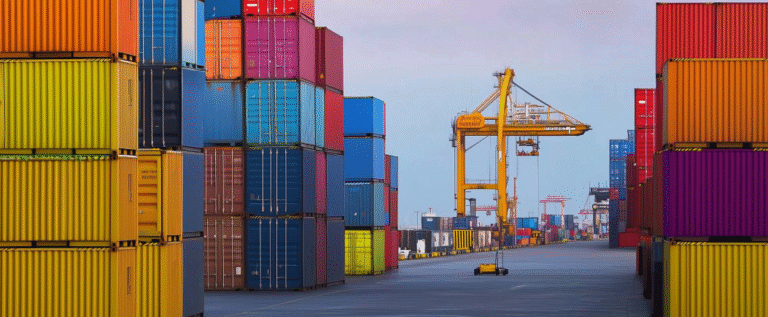Demurrage refers to the fee charged when containers or goods linger at a terminal beyond the allowed free time. Its purpose is to keep port operations flowing smoothly and prevent congestion. Despite its intention, demurrage is a significant and avoidable cost leak in supply chains for importers, exporters, and carriers.
In Nigeria, where customs clearance, berth congestion, and port operations can be unpredictable, demurrage fees can escalate rapidly and add to logistics expenses. Partnering with a proactive shipping company, including a reliable shipping/port agent and freight-forwarding partner, is crucial in minimizing such delays and associated costs.
What Causes Demurrage Delays?
Here are the reasons for demurrage delays:
- Documentation Gaps and Late Customs Clearance: Missing or incorrect paperwork delays release.
- Congestion at Ports and Berth Unavailability: Vessels/containers must wait for slots or gantries.
- Delayed Truck Pickup or Inland Haulage Bottlenecks: No planned pickup within free time.
- Discharge Operating Mistakes: Tally differences, faulty manifests, or surveys as a requirement.
- Surprise Inspections or Regulatory Holds (CIQ: Customs, Immigration, Quarantine): These activities can create stop-gaps if not programmed.
Each of those is manageable with strategy, not luck. That is where a veteran seafaring company steps in.
The Cost Climate: Understanding Demurrage in Nigerian Ports
Nigerian ports impose a combination of tariffs, terminal fees, and daily detention and demurrage charges. Carriers and terminals enforce free-time policies, after which mounting fees kick in. The Nigerian Ports Authority sets and adjusts tariff structures, impacting port charges.
As a result, delays not only disrupt operations but also erode profit margins. Major shipping lines charge varying demurrage and detention rates depending on the terminal and container type, with fees escalating rapidly per calendar day after the free time period expires.
How a Shipping Company Evades Demurrage: The Playbook
Below are the specific, high-leverage services an effective maritime company offers in order to prevent demurrage delays.
1. Rigorous Pre-Arrival Planning and Berth Reservation
Before a vessel arrives, the agent confirms berth availability, pilot/tug schedules, terminal readiness, and crane allocation. This reduces waiting at anchorage and speeds the first hook of cargo handling—one of the fastest ways to cut port time and avoid demurrage. Good agents also plan the loading/discharge sequence to avoid re-stows or unnecessary delays.
2. Paperwork, CIQ, and Customs Prepared in Advance
A large proportion of demurrage is induced by clearing processes. The shipping line collects and pre-checks import permits, commercial invoices, bills of lading, and packing lists; files customs declarations ahead of arrival; and coordinates CIQ inspections to overlap rather than sequentially. Proactive management of documentation is one of the best methods of shaving days off release time.
3. Prompt, Reliable Local Haulage & Terminal Pickup Coordination
Once released, they must be transported. Agents coordinate licensed trucking partners, schedule pickups during the free-time window, and provide back-up trucking when gridlock occurs—so containers are not stuck in the terminal because a truck was unavailable. Local haulage coordination is more important than ever at Nigerian ports, where road/logistics congestion is an issue.
4. Real-time Visibility and Communication
Agents provide real-time information on ship arrival, discharge status, CNTR status, and customs holds to everyone (shipper, consignee, trucker, port authority). With this visibility, action can be taken instantly when an issue becomes evident—like assigning an extra truck, escalating an inspection, or rescheduling. Visibility investment is proven to reduce detention/demurrage exposure.
5. In-Port Supervision and Cargo Reconciliation
Professional superintendents of cargo and tally crews manage stevedoring and perform immediate reconciliation of physical cargo vs. quantities/manifest. Early detection of damage or shortages prevents disputes that would otherwise result in holds and lengthy investigations. Agents arrange surveyors in the field quickly to facilitate the resolution of claims.
6. Priority Handling / Expedited Services
For time-sensitive shipments, agents negotiate priority discharge, express terminal handling, or even out-gate temporary storage (bonded warehousing) to fit within free-time windows. These premium services are usually far less than extended demurrage.
7. Expert Negotiation and Pre-Authorization with Authorities
A good agent maintains relationships with port officials, customs, and CIQ crews—allowing for faster escalations, clarifications, and, in cases, negotiated extensions or waivers. Those are valuable when a shipment is encountering unexpected regulatory pushback.
8. Reconciliation and Lessons Learned Post-Call
When the vessel has left, the agent quickly closes disbursement accounts and flags process bottlenecks so the following calls don’t get caught in the same traps. Continuous improvement reduces the likelihood of repeat demurrage.
Why an Expert Local Agent in Nigeria Matters
A generic global forwarder may lack local muscle. A local maritime company with office presence, customs knowledge, and 24/7 reach will outperform remote agents in fast fixes. Wolid International, for instance, advertises 24/7 customer support, port agency services, freight forwarding, and local haulage coverage—capabilities that map directly to the demurrage prevention playbook.
When vetting an agent, ask:
- Where are your local offices, and which terminals do you cover? (local presence matters)
- Do you provide pre-arrival document checks and CIQ coordination?
- Can you guarantee trucking/haulage slots inside free time windows?
- What KPIs do you report for vessel turnaround and cargo release?
- Can you provide examples of avoided demurrage or expedited releases?
Practical Checklist — Day-by-day Actions to Prevent Demurrage
Use this checklist as daily operating guidance when a vessel is inbound or cargo is arriving:
D-7 to D-3 (Before Arrival)
- Confirm ETAs and berth windows; lock in pilot/tug bookings.
- Pre-file customs declarations and request priority CIQ inspections if needed.
D-2 to D (Arrival)
- Confirm trucking availability and assign back-up hauliers.
- Prepare all original documents and soft copies for instant submission to CIQ and the terminal.
D (In-Port)
- Supervise stevedores and run tally checks as discharge begins.
- If inspections are scheduled, ensure they happen concurrently with discharge to avoid re-handling.
Post-Departure
- Finalize disbursements and dispute any incorrect terminal charges immediately.
Real-world View: The ROI of Preventing a Single Day of Demurrage
Because demurrage fees (container/day) are carrier and terminal-contract-established, one day in demurrage snowballs across containers and voyages. At Nigeria’s ports, printed carrier rate tables show day-to-day increases over free time, so not holding up for one day usually saves multiples of an agent’s service fee. This is such a high-ROI action, it is best performed by a professional and in port.
How Wolid International Delivers These Services
Based on Wolid’s stated services and capabilities, a company like Wolid helps prevent demurrage through:
- Shipping Agency Services: Coordinates berthing, pilot/tug, crew assistance, and in-port liaison.
- Freight-Forwarding & Customs Clearance: To get documents and CIQ processed ahead of arrival.
- Haulage & Landside Logistics: To secure trucks and move cargo within the free time.
- 24/7 Communication: Maintain client updates so issues are caught before they become fees.
These exact services map to the steps above and are the practical reason a team on the ground reduces demurrage exposure.
Quick Tips You Can Implement
- Treat Documentation Like Cargo: Errors in paperwork cause the longest delays.
- Book Haulage Early and Confirm Twice: A no-show truck causes immediate terminal time accumulation.
- Use Bonded/Temporary Stores For Peak Periods: Sometimes, moving goods to a bonded area is cheaper than demurrage.
- Ask for KPI Reporting: Request this from your agent so you can measure missed targets (and hold providers accountable).
Conclusion
Demurrage is not a levy you simply have to swallow; it’s a sign of drag in your supply chain. With rigorous pre-arrival planning, rapid CIQ/customs clearance, synchronized haulage, and in-port real-time tracking, it is feasible for a maritime operator to substantially reduce detention and demurrage risk.
In the port universe of Nigeria, where paper, port fees, and congestion are real barriers, Wolid International LTD is the most secure way of protecting your margins and getting your ships on schedule.





